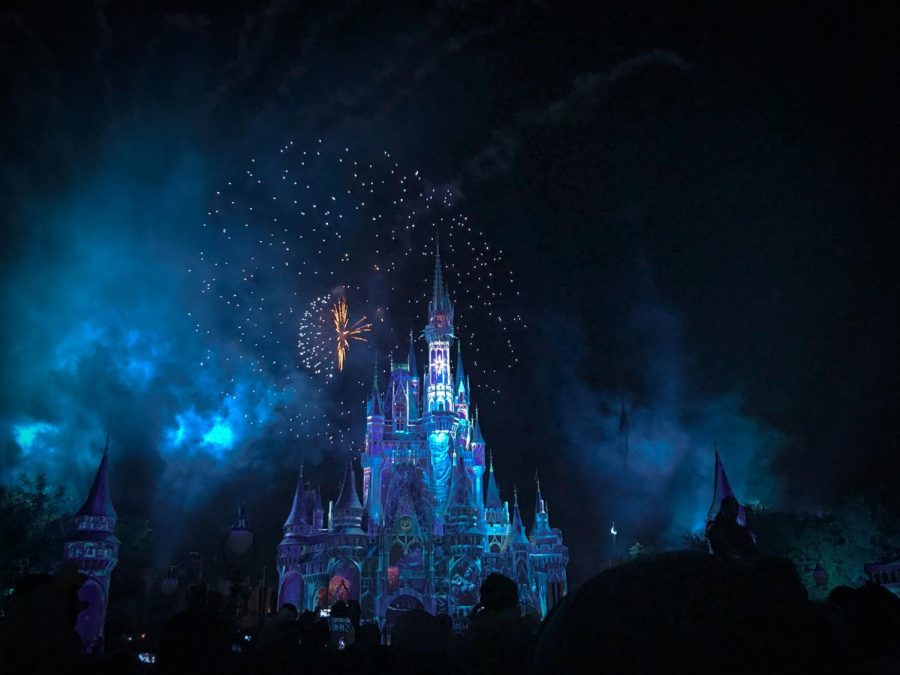House of Mouse Monopoly?
November 15, 2021
There is no ignoring it, Disney has grown substantially since it was first established in the 1920s. The corporation has become a cultural juggernaut of the media industry. Disney’s various assets include, but are not limited to, ABC (American Broadcasting Company), Marvel, Lucas Films, ESPN, and relatively recently, Pixar. Disney has had a massive impact on the media that we are exposed to on a daily basis, from animation to broadcasting. When all outlets are owned by one corporation, there is no competition and consumers are not given much of a choice in where to go; this is essentially a monopoly. Now, a monopoly is not necessarily a bad thing; it can have negative effects on consumers and other aspects of the economy. When a monopoly occurs there is no diversity in what we consume, and our imagination/creation becomes limited. How is Disney monopolizing the media and animation industry? What kind of influence and power does this give the corporation?
I want to establish right now, my aim is not to besmirch or vilify this company but to shed some light on the business side of things and look at different thoughts on the brand as a whole. There are many Disney movies that are near and dear to my heart, just like anyone else. Admittedly, whenever I write these articles I always learn a lot more than I knew going in because I always do research to back up my pieces. I was looking into how many companies Disney owns as of today and I could feel my jaw hit the ground. I found a huge comprehensive list of House of Mouse owned assets, the article goes into detail about the real reach this has on the media: https://www.titlemax.com/discovery-center/money-finance/companies-disney-owns-worldwide/.
There has always been a significant amount of controversy surrounding the company, as many people have villainized Disney about their business practices and moral obligations to the stories they tell our younger generation. The idea that Disney is a monopoly has existed practically forever, but the idea always gets revisited as the company grows and accumulates more assets. There are some who disagree with this idea and argue that Disney cannot be a complete monopoly as long as other corporations exist outside of its assets. Corporations such as Sony, Universal Studios, Warner Bros, and many other production companies still exist, but for how long? Disney has already consumed a number of other companies, who is to say they won’t become bigger as we progress into the future?
In the long run, Disney can assimilate their competitors but not taking control of the market as a whole is just better business. When Disney buys out corporations, it is usually somewhat of an investment on their end and a trust for the other corporations. Disney is very powerful and more importantly it is a household name, other businesses can use this to their advantage like Marvel and Fox if they are purchased by the famed House of Mouse. Becoming a part of such a massive conglomerate guarantees them a spot in the limelight. So why not sell to Disney? They are great at marketing, promoting, and protecting their assets. But, how does this slowly increasing monopoly negatively impact the entertainment industry? Or why is this kind of monopolization bad?
When you have control over numerous means over media, and have gained a lot of traction in internet streaming over the past few years, you have a lot of influence over production and distribution. Due to this massive influence, Disney is almost single handedly killing commercial movie theaters. Not only with the growing popularity of its streaming service but also in the way that it raises the prices to feature these films, requesting the biggest theaters and longer showing times to get their films bigger numbers in the box office. At the same time doing this also leads to Disney taking all the attention from more original stories created by other entertainment companies. Resulting in those new stories doing poorly in sales and bombing. This is especially notable as Disney has been recycling old material and working the nostalgia factor for a vast majority of their marketing. Tales as old as time indeed.
Disney will continue to be one of the biggest things since sliced bread, and it is only getting bigger by the year. Who knows where they will be in just a decade or two. As Disney contributes to the growth of media and entertainment, it will influence millions of people around the globe. I am unsure of whether I believe Disney is a villain but I recognize how they influence and shape others perspectives; as well as how they impact other aspects of the economy. With great power comes great responsibility, to their consumers and their assets.
Demetria Slyt is a Dakota Student general editor. She can be reached at Demetria.slyt@und.edu.


